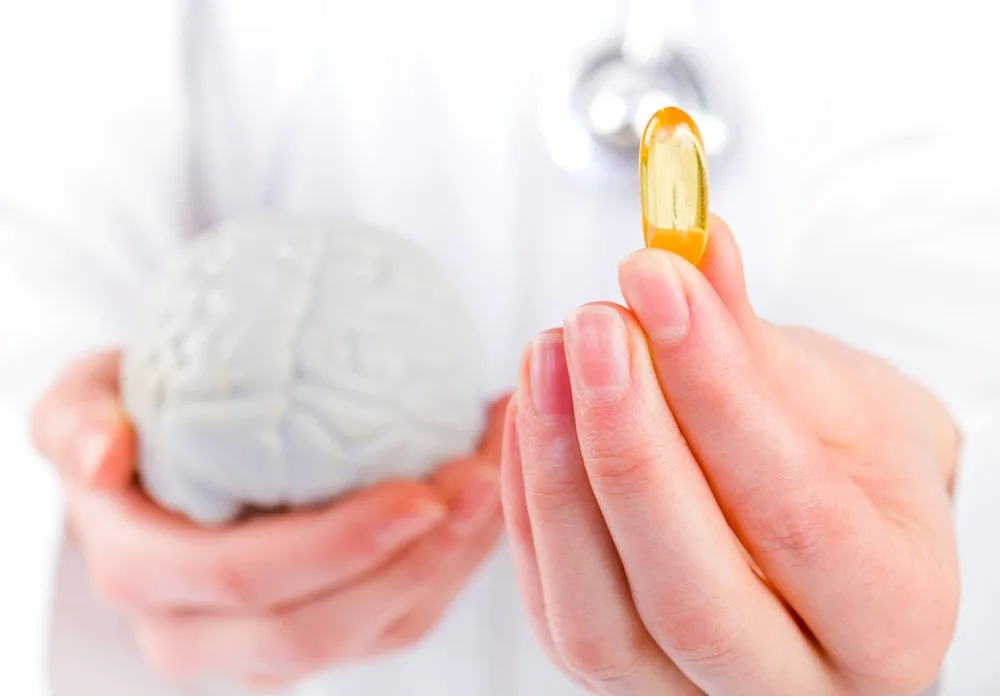According to the National Institutes of Health (NIH), about 1 in 3 adults admit to taking multivitamins to promote and protect good health. With rising rates of neurodegenerative decline among the older adult population, researchers from Columbia University and Brigham and Women’s Hospital/Harvard set out to determine if multivitamins may work to preserve memory and slow down cognitive decline.
Multivitamins and Memory
“Cognitive aging is a top health concern for older adults, and this study suggests that there may be a simple, inexpensive way to help older adults slow down memory decline,” says study leader Adam M. Brickman, Ph.D. Brickman is also a professor of neuropsychology at Columbia University Vagelos College of Physicians and Surgeons.
For the study, over 3,500 adults aged 60 and over were recruited and assigned either a daily Silver Centrum multivitamin or a placebo for three years. Additionally, the participants partook in yearly online cognitive tests that were intended to assess the memory function of the hippocampus, which is the area of the brain affected by aging.
Multivitamins as a memory drug?
“We estimate that the effect of the multivitamin intervention improved memory performance above placebo by the equivalent of 3.1 years of age-related memory change.”
Per the findings of the study, published in the American Journal of Clinical Nutrition, people who took the multivitamin had greater memory compared to the placebo group.

Lightspring/Shutterstock
The latest findings aren’t the first to find an association between multivitamins and improved memory. A separate study published in April in Alzheimer’s & Dementia found that in over 2,200 older adults, a daily multivitamin improved cognition, memory recall, and attention.
Are multivitamins all we need?
While multivitamins may assist the body, the study’s findings do have limitations. For one, the majority of participants were Caucasian, so the results may not apply to other races. Therefore, the results may not apply to other groups. Also, the memory improvements were small, and the authors of the study point out that this may not be noticed by people.
They add that “even small effect sizes can result in large health benefits at the population level.”
A healthy diet trumps multivitamins
“It’s important to highlight that a multivitamin will never be a substitute for a healthy diet. But it may be a complementary approach or strategy for maintaining cognitive health among older adults,” says study author Dr. JoAnn Manson.
Brickman echoed Manson’s statement, adding that while the study does show that supplementation of any kind shouldn’t take the place of more holistic ways of getting the same micronutrients. Brickman also points out that though multivitamins are generally safe, people should always consult a physician before taking them.
So what’s the best diet for a healthier memory?
Dr. Uma Naidoo, a nutritional psychiatrist, brain expert, professional chef, a faculty member at Harvard Medical School, and author of This Is Your Brain On Food, shared her list of brain foods with CNBC. They include:
1. Spices
“One of my favorite spices is turmeric — a standout when it comes to reducing anxiety.” writes Dr. Naidoo. She adds that curcumin, the active ingredient in turmeric, can decrease anxiety and protect the hippocampus.
Dr. Naidoo also shares that she’s a lover of saffron. Citing a 2013 meta-analysis, Dr. Naidoo revealed that research found that saffron consumption significantly reduced depression symptoms compared to placebo controls.
2. Fermented foods
Whether it’s miso, sauerkraut, kimchi, kombucha, or plain yogurt, Dr. Naidoo writes that the probiotics found in fermented foods have been found to improve memory and slow cognitive decline.
3. Dark chocolate
Who doesn’t love some dark chocolate?
This delicious treat is rich in both magnesium and iron, and these two compounds have been found to improve memory. In fact, a recent study suggested that a higher magnesium intake may protect brain health and prevent the development of dementia.
4. Nuts
Nuts are great snack food – they’re healthy, delicious, and can do wonders for your memory. Thanks to their healthy fats content, nuts can improve brain functionality.
“I recommend eating 1/4 cup a day (not more — it’s easy to overdo it with nuts!) as a snack or added to your salad or vegetable side dish. Nuts can even be combined into a homemade granola or trail mix that contains much less sugar and salt than store-bought versions,” writes Dr. Naidoo.
5. Leafy greens
If there’s one thing that should also be on your plate, then it’s definitely leafy greens. According to Dr. Naidoo, leafy greens contain vitamin E, carotenoids, and flavonoids, which can protect against dementia and cognitive decline.
Additionally, leafy greens like spinach, Swiss chard, and dandelion greens are an incredible source of folate, and improving folate status can be beneficial for your cognitive health.
Want to know more?
It’s a scary thought, but memory loss is a common symptom of neurodegenerative disease. The good news is that early identification, proactive nutrition, and new therapies can boost your brain’s age.
References
Khazdair, M. R., Boskabady, M. H., Hosseini, M., Rezaee, R., & M Tsatsakis, A. (2015). The effects of Crocus sativus (saffron) and its constituents on nervous system: A review. Avicenna journal of phytomedicine, 5(5), 376–391.
Kim, B., Hong, V. M., Yang, J., Hyun, H., Im, J. J., Hwang, J., Yoon, S., & Kim, J. E. (2016). A Review of Fermented Foods with Beneficial Effects on Brain and Cognitive Function. Preventive nutrition and food science, 21(4), 297–309. https://doi.org/10.3746/pnf.2016.21.4.297
L Letenneur and others, Flavonoid Intake and Cognitive Decline over a 10-Year Period, (2007), American Journal of Epidemiology, Volume 165, Issue 12, Pages 1364–1371, https://doi.org/10.1093/aje/kwm036
Ng, Q. X., Koh, S. S. H., Chan, H. W., & Ho, C. Y. X. (2017). Clinical Use of Curcumin in Depression: A Meta-Analysis. Journal of the American Medical Directors Association, 18(6), 503–508. https://doi.org/10.1016/j.jamda.2016.12.071
Reynolds E. H. (2002). Folic acid, ageing, depression, and dementia. BMJ (Clinical research ed.), 324(7352), 1512–1515. https://doi.org/10.1136/bmj.324.7352.1512
Sachs, BC, Williams, BJ, Gaussoin, SA, et al. (2023). Impact of multivitamin-mineral and cocoa extract on incidence of mild cognitive impairment and dementia: Results from the COcoa Supplement and Multivitamin Outcomes Study for the Mind (COSMOS-Mind). Alzheimer’s Dement. 1- 9. https://doi.org/10.1002/alz.13078
Yeung, L. K., Alschuler, D. M., Wall, M., Luttmann-Gibson, H., Copeland, T., Hale, C., Sloan, R. P., Sesso, H. D., Manson, J. E., & Brickman, A. M. (2023). Multivitamin Supplementation Improves Memory in Older Adults: A Randomized Clinical Trial. The American journal of clinical nutrition, S0002-9165(23)48904-6. Advance online publication. https://doi.org/10.1016/j.ajcnut.2023.05.011





![women [longevity live]](https://longevitylive.com/wp-content/uploads/2020/01/photo-of-women-walking-down-the-street-1116984-100x100.jpg)










